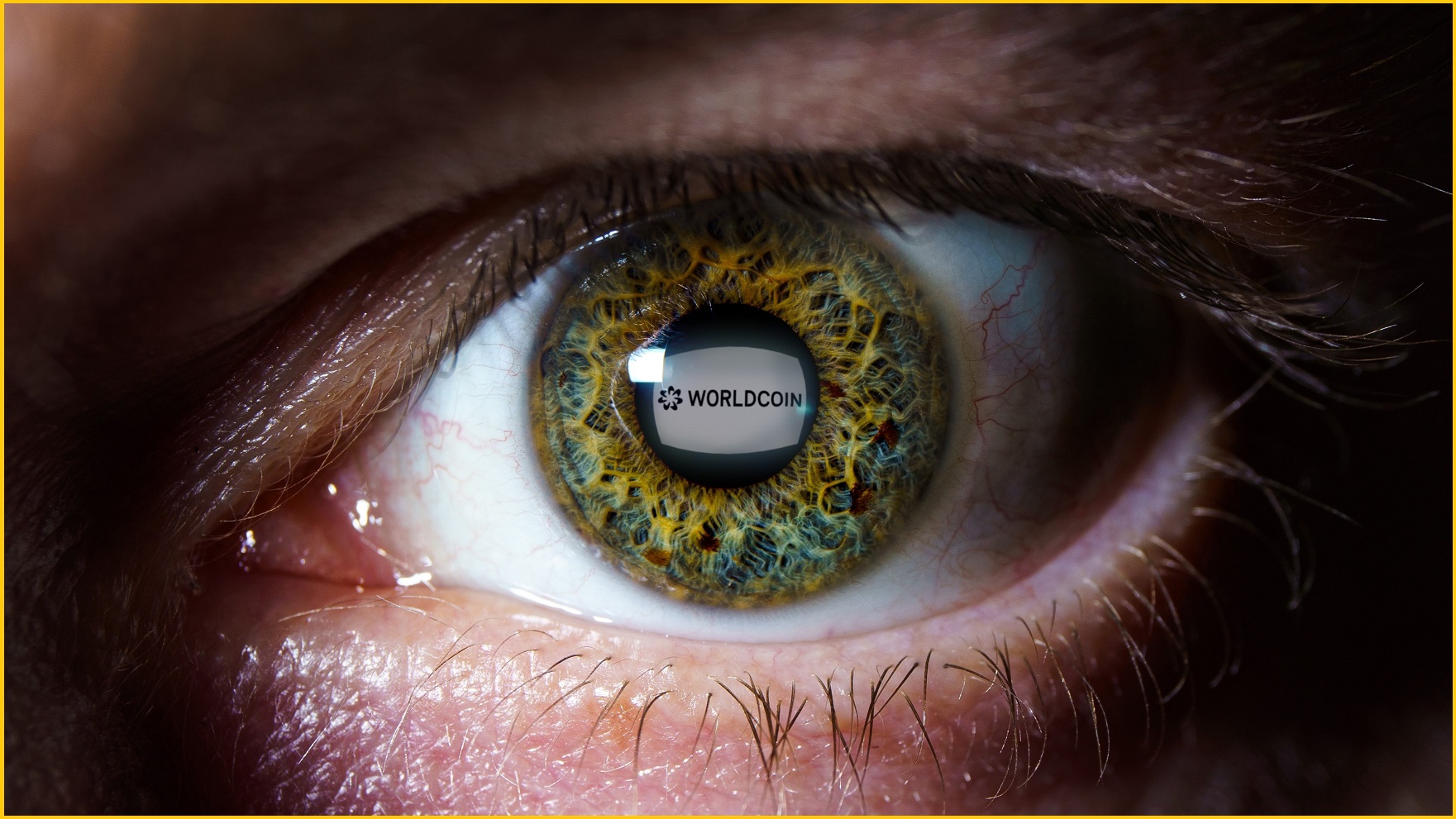Cryptocurrency project Worldcoin says it wants to provide a universal basic income (UBI) to every human being in response to the expected labour upheaval caused by artificial intelligence, but first you have to prove you’re human by letting the company scan your eyeballs using its iris scanner, the Orb.
Worldcoin was co-founded by OpenAI CEO Sam Altman during the last crypto bull run but officially launched this week with a mobile app that serves as your World ID wallet and is used during the Worldcoin onboarding process.
In a statement about the launch, Altman and his co-founder Alex Blania described the project as “a reliable solution for distinguishing humans from AI online while preserving privacy”.
They said Worldcoin could also “enable global democratic processes, and eventually show a potential path to AI-funded UBI”.
The proposed UBI part of Worldcoin could come from its ‘grants’ in the form of WLD ERC-20 tokens the protocol gives to people on the network, including an initial ‘Genesis Grant’ of 25 WLD .
At the time of writing, one WLD is worth around $3.50, according to CoinGecko.
Joining the project involves going to a physical location and letting a spherical silver device – the design of which was led by former Apple designer Thomas Meyherhoffer – scan your iris to prove you are “both human and unique”.
More than two million people signed up for Worldcoin in its beta phase prior to this week’s launch.
At the time of writing there, are just over 120 Orb locations around the globe and none in Australia, though you can apply to become an Orb Operator and earn money for scanning eyeballs.
The Orb is a crucial part of Worldcoin because of its ‘proof of personhood’ foundation.
Crypto projects use many different ‘proofs of’ to ensure the blockchain’s validity: Bitcoin uses mathematical processes with varying degrees of difficulty for its ‘proof of work’ protocol; while Ethereum recently moved to a ‘proof of stake’ model that incentivises Ethereum holders to maintain the network’s integrity.
Proof of personhood
‘Proof of personhood’ is designed to ensure that every World ID is unique and only refers to a single person.
This creates the function of World ID as a way to authenticate online services and provide some form of mitigation against bots which are becoming harder to spot thanks in no small part to Worldcoin’s own co-founder who unleashed ChatGPT onto the world late last year.
“If every message or transaction included a "verified human" property, a lot of noise could be filtered from the digital world,” the project’s whitepaper says.
Worldcoin has already been integrated into enterprise identity management tool Okta.
Crucially, Worldcoin wants to use its ID and tokens as a form of protocol governance – a common feature in crypto projects.
Proof of personhood, the Worldcoin whitepaper says, means online voting (either in the context of web3 or “global democratic governance mechanisms”) can be theoretically limited by the number of people, not just whoever holds the most tokens.
The project appears to be providing a service that many governments are struggling to implement, leading to criticisms that Altman – who is also involved in a business building small nuclear reactors – is creating an ecosystem of quasi-government projects.
The US Electronic Privacy Information Centre called Worldcoin “a potential privacy nightmare” that puts Altman “at the centre of digital governance”.
“Worldcoin’s approach creates serious privacy risks by bribing the poorest and most vulnerable people to turn over unchangeable biometrics like iris scans and facial recognition images in exchange for a small payout,” it said in a statement.
“Ultimately, Worldcoin wants to become the default digital ID and a global currency without democratic buy-in at the start, that alone is a compelling reason not to turn over your biometrics, personal information, and geolocation data to a private company.
“We urge regulatory agencies around the world to closely scrutinize Worldcoin.”
The project appears to be providing a service that many governments are struggling to implement, leading to criticisms that Altman – who is also involved in a business building small nuclear reactors – is creating an ecosystem of quasi-government projects.
In a recent interview with the Financial Times Altman said it was state apparatuses that ought to be the ones building artificial intelligence, robust identity systems, or nuclear fusion reactors – not tech companies.
“And yet they’re not,” he said. “So we either sit around and watch the gradual decline of state capacity and say ‘that’s a bummer’ and we’re just going to have any more technical progress, or you do the next best thing and just build great companies.”










